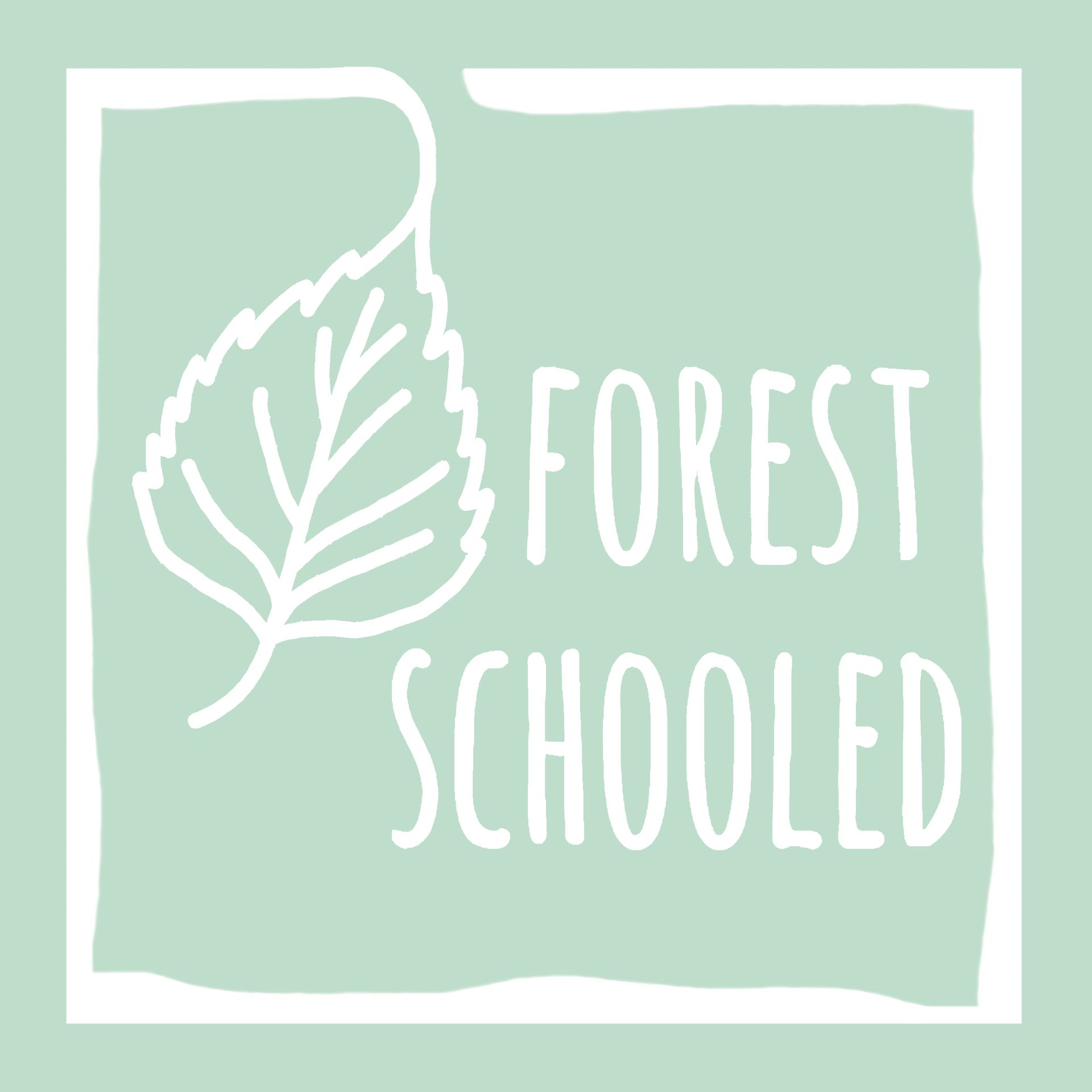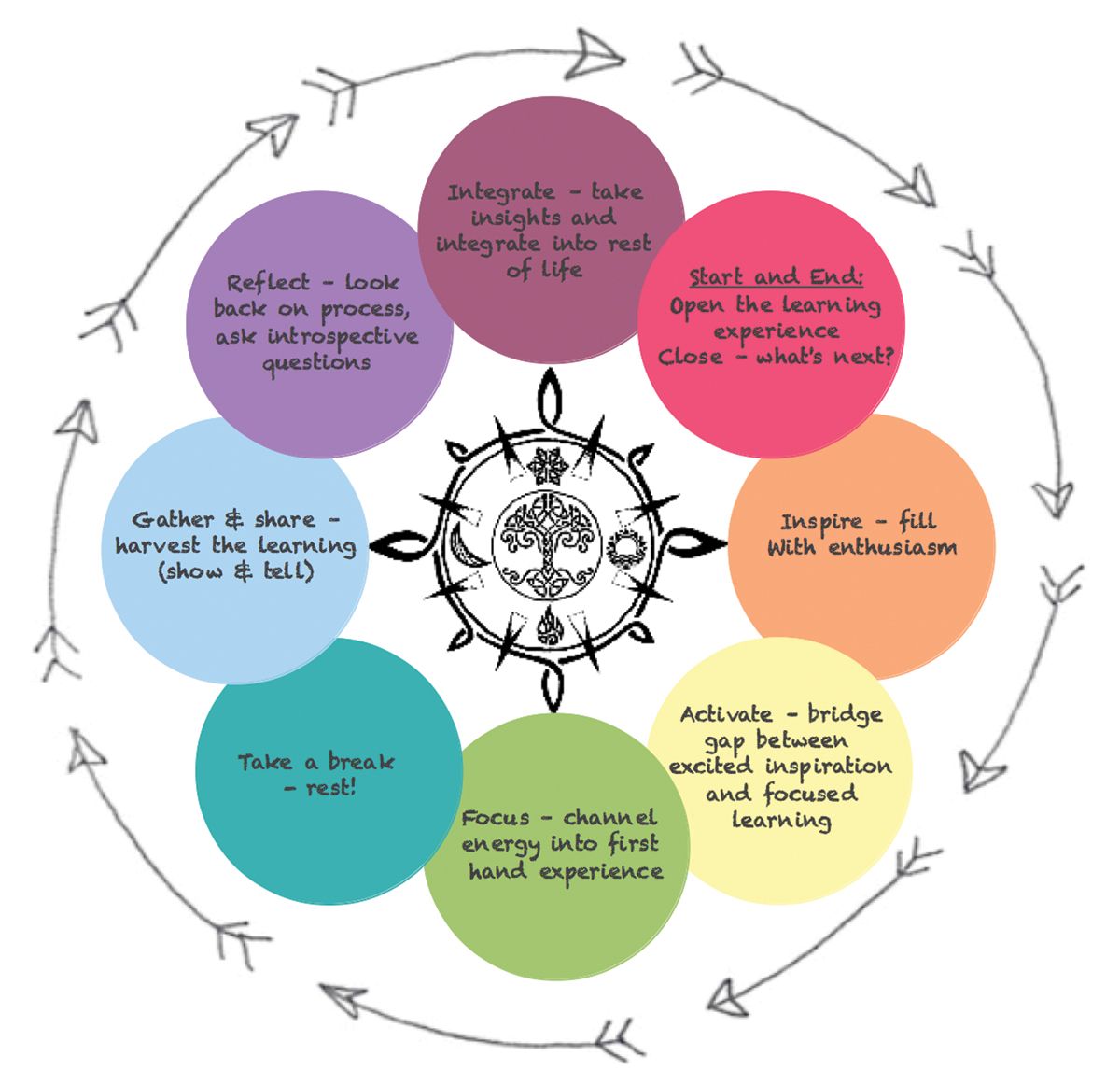
Blog
Stories from my personal journey learning about and delivering Nature-rooted programs across three different countries
How to 'plan' learner-led experiences...
Caylin (Forest Schooled)

Empty space, drag to resize
Forest School leaders need lots of different tools. I don't just mean tools like saws and loppers. I also mean mental tools, as in ideas or ways of thinking about things that make what we do easier to deliver. I've added a tool to my mental toolbox recently after reading the Coyote's Guide to Connecting with Nature by Jon Young, Ellen Haas, and Evan McGown.
What I took away most from this book was the concept of facilitating 'Flow Learning' by using the 'Natural Cycle'. It's based on the notion that we observe patterns or cycles in nature (such as the cycle of a day, the seasons in a year, or a life cycle) and stages within these cycles can be associated with particular 'feelings' or 'states of mind'.
For example, the start of the day can be an inspiring time when we become filled with enthusiasm for the day ahead. As the day progresses we channel our energy into the tasks at hand and focus in. Later in the afternoon we need a break and a rest. In the evening we may look back on what we did over the course of the day and reflect.
The concept of 'Flow Learning' argues that if we follow the 'states of mind' associated with particular aspects of these cycles and how they flow from one to another when planning outdoor experiences for individuals or groups, we can better tap into the participants' learning potential.
Above is a diagram I made giving a basic overview of 'Flow Learning' based on the 'Natural Cycle' outlined in Coyote's Guide.
This is a very basic overview so please read Coyote's Guide to Connecting with Nature to gain a better understanding! But I wanted to introduce the idea here because I think the concept can be interpreted as another way of saying: "How to 'plan' learner-led experiences". And it gives us a tool for doing this by providing objectives to focus on when we're planning as well as guidance on how to adapt when things inevitably don't go as we planned!
Coyote's Guide suggests that when learners don't respond to your plan, to ask yourself, “What energy are they manifesting instead?” (Young et al., 2010, pg. 234). It asks us to interpret body-language and 'go with the flow' by introducing the idea of 'The 50-50 Principle', meaning once you plan everything, expect only 50% to actually happen, the other 50% will be unplanned improvisation based on what people, nature, and the conditions provide that day (Young et al., 2010).
By thinking about learning as a cycle, we can look out for cues to help us recognise where an individual or group is 'at' and how to cater to that specifically. I think this is a brilliant way of ensuring things stay learner-led.
I came up with the following questions based on the 'Natural Cycle' that could be thought about both while planning and delivering a session. They don't need to be asked (and won't necessarily be answered!) in the following order – it depends on where your learners are 'at'. The point is you might find it valuable to make sure they are all incorporated at some point.
Open
Are we taking a moment to greet our group, step back from all our day-to-day lives, and acknowledge the experience about to be had?
Inspire
Are we providing inspiration for our learners? (This could be through storytelling, providing resources to play and experiment with, or just letting the learners inspire themselves by having the session take place in a stimulating environment.)
Activate
Are we providing the tools and support necessary for them to act upon their enthusiasm?
Focus
Are we giving them time to focus on what they're interested in?
Take a Break
What about a chance to rest when they tire from focusing? Different people may finish things at different times so, more specifically, is each individual given a chance to rest when HE/SHE is in need or ready for it?
Gather & Share
Are we providing opportunities to share what we've learned with each other so we can gain insight from each other’s experiences? (Sharing also helps us articulate what we learned for ourselves!)
Reflect
Are we taking a moment to reflect on how that learning might change the way we think or do things in the future?
Integrate
Can we find ways to expand upon and apply the learning to other aspects of our lives that would make a positive difference?
Close
Are we marking the end of the session to give everyone a chance to reincorporate back into their day-to-day lives? Did we notice or listen out for what the inspirations could be for next time?
Whether you believe learning truly flows through a 'Natural cycle' or not, I think the concept and the questions above can offer a useful tool for delivering meaningful experiences that are 'learner-led'. It is especially useful if the notion of 'learner-led' is something you struggle with in practice (Let's be honest, I know I do sometimes!).
I'm keen to try the ideas out in my own planning and delivery. Maybe sometime down the line I'll write another post about how it works out!
References:
Young, J., Haas, E., McGown, E. and Louv, R. (2010) Coyote’s guide to connecting with nature. 2nd edn., OWLLink Media, Santa Cruz, CA, United States
More Posts
WANT TO GET FOREST SCHOOLED TOO?
Subscribe to my email letters, something special from me to you so we can learn together. Each one is filled with heart-felt stories from the forest, resources you may find useful, and things that hopefully bring a smile too.
Thank you!
© by FOREST SCHOOLED
